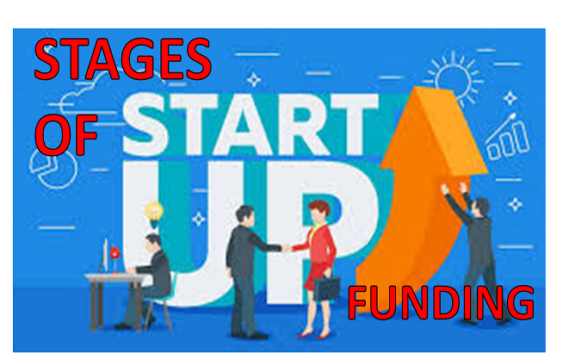- MPILO HOSPITAL IN NEEDS OF MASSIVE INFRASTRUCTURAL CHANGE IN ZIMBABWE
- HOW MDCB BAIL OUT BOSTWANA MINERGY OVER LOST OF COAL PRODUCTION
- WHY ACCESS TO WATER IS STILL A MAJOR ISSUE IN AFRICA
- PRE DEVELOPMENT SET TO UNHELD PROMISE OF HADABA PROJECT DESPITE SEVERAL SETBACK IN EGYPT
- WHY MOROCCO WANT TO CUT ENERGY DEPENDENCE FROM SPAIN
STAGES OF FINANCING IN BUSINESS (STARTUPS)

The Stages of Startup Funding
There are several stages of financing in business. Businesses especially startups raise capital for various levels and types of business operations through series or multiple rounds of financing and funding. These funding rounds or stages includes Pre-seed capital and seed capital, Series A, B, and C funding rounds.
The Pre-seed capital and seed capital stages of financing in business represent funding in the early stages of business; While Series A, B and C are funding during growth stage of the business.
Pre-seed Capital funding:
This is the earliest stage of funding for a startup. It is the period for which founders of a company first begin or start off operations. Usually at this stage; the founders either work with a very small team or by themselves to assess the viability of their idea (product or service) and also to develop a prototype and business model.
The money expected from the pre-seed funding stage cannot be quantified; but it usually comes from the founders themselves, their families, friends and family; and maybe an angel investor or an incubator.
Seed Capital funding:
Like the name implies, it is the seed that will hopefully help grow the business. This is the first official equity funding stage, it is the first money a business raises officially. The Money from seed funding is mostly for; product development, market research and also to deepen traction in the target market. The most common type of investors at this stage who are usually less than 15 are the angel investors who tend to appreciate riskier ventures. The investors will get convertible notes, equity, or a preferred stock option in exchange for their investment.
The amount of money expected from this stage of financing in business is between US$500,000 and US$2 million (€250K to €1 million) while the business value would be around US$3 million and US$6 million.
Note that the business must already have a minimum viable product before it can raise seed capital funding.
Series A funding:
Series A funding is the first round of financing a startup receives; after it probably have survived and gained traction (customer base). The company usually offers equity (ownership) by allotting preferred stock in exchange for investments from venture capital firms and other investors. The implementation of the Series A funding is usually to further optimize a company’s user base and product offerings, position the business for future growth and also prepare for expansion.
Before Series A round of funding; startups are expected to already have a business model which will generate long term profit. They’re also expected to use the money raised to increase revenue. The fund raised from Series A funding is between US$2 to US$15 million (€2 to €5 million) for firms valued at up to US$15 million; the funds raised may also be higher if the company have unicorn potential (that is the company’s value is over US$1 billion).
Series B funding:
At this point, the business have moved past its developmental stages. The company’s product/service is already been sold in the market, there is also an established user base and a working business model. The Series B round of funding is then needed to scale up, face competitors and gain market share; so funds from this round will go into business development, sales, advertising, tech, talent acquisition and possibly international expansion.
The investors at this stage are similar to those at the Series A round; although they may be joined by some venture capital firms that specialize in later stage investing. The estimated sum generated from this stage of financing in business; is between US$7 to US$20 million (with company valuation around US$30 million and US$60 million).
Series C funding:
Businesses that reach this level have already proven to investors and venture capital firms that they are successful. They are now ready to expand to new markets, acquire other businesses, develop new products and enter the international market. The Series C round of funding is therefore the last stage for startups before they seek an Initial Public Offer (IPO).
Investors such as hedge funds, investment banks, private equity firms and big secondary market groups will all begin to invest at this stage. For Series C funding, companies usually raise on the average around US$26 million. Companies in this stage have a valuation of between US$100 million and US$120 million.
OTHER STAGES OF FINANCING IN BUSINESS
Although Series C is often the last round of fund raising for companies; some however still go on to raise Series D and even Series E round. This new rounds of funding are embarked on especially if the company wishes to raise its value before going public or to stay private longer than is common.

